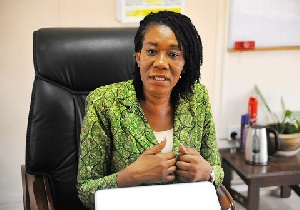 Dr. Leticia Adelaide Appiah, Executive Director, National Population Council
Dr. Leticia Adelaide Appiah, Executive Director, National Population Council
Dr. Leticia Adelaide Appiah, Executive Director, National Population Council, has said family planning hold the key to achieving Sustainable Development Goals (SDGs).
She underscored the need for voluntary family planning to eradicate extreme poverty and hunger towards achieving universal primary education, gender equality, women empowerment and environmental sustainability.
Dr. Appiah was speaking at the 2018 national launch of World Population Day Celebration in the Volta Region on the theme “Family Planning is a Human Right; An Imperative to Sustainable Economic Development”.
She said it was unfortunate that though this year marked the 50th anniversary of the International Conference on Human Rights, millions of women still had no access to safe and effective family planning methods.
Dr Appiah said family planning methods had strong linkages with SDGs at all levels and called for positive attitudes towards family planning methods for rapid socio-economic development.
She called for a conscious effort to link effective population management with the various sectors of the economy to help improve the well-being of the people.
Dr Appiah called for investment in family planning methods to slow population growth, increase the nation’s wealth and ensure self-sufficiency.
Dr Archibald Yao Letsa, Volta Regional Minister, in a speech read on his behalf said, Ghana had the opportunity to turn its population dynamics into valuable demographic dividends.
He said through family planning methods, Ghana could attain a lower fertility rate, which could lead to a more balanced age structure conducive for economic growth.
Dr Letsa said according to the 2014 Ghana Demographic and Health Survey, the contraceptive prevalence rate in the Volta Region was 29.5 per cent and the total fertility rate was 4.3 per cent, which were all higher than the national rate of 22.2 per cent and 4.2 per cent respectively.
He called for prudent measures to meet the high need for family planning in the Region.